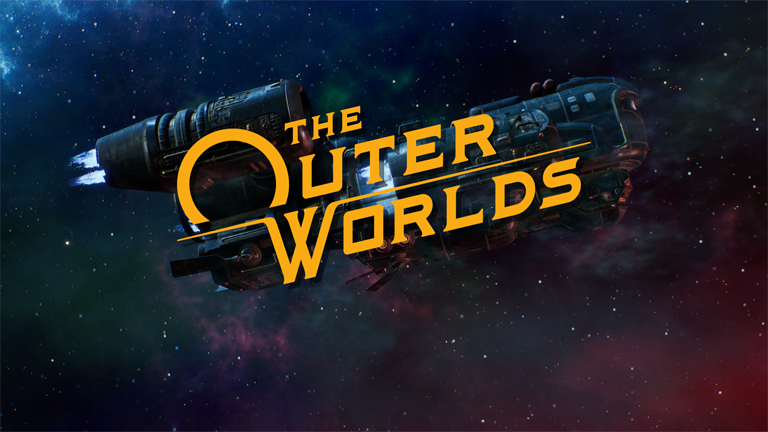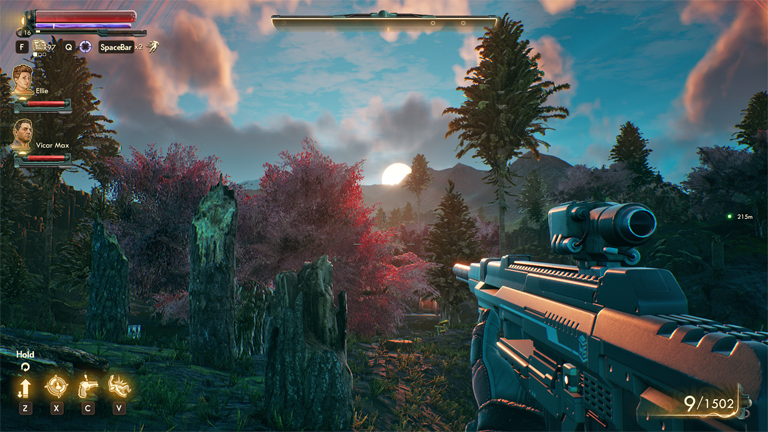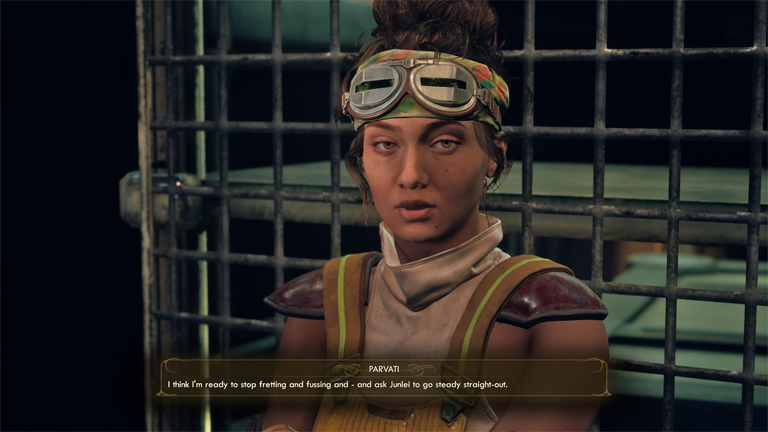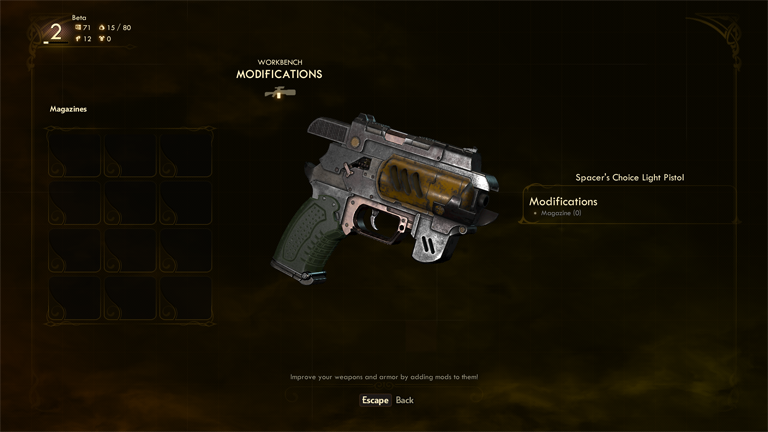There are a lot of ways I could justify my fondness for The Outer Worlds — Obsidian's last indie effort prior to their acquisition by The Evil Empire.

There's pedigree: being made by (formerly) the Last Remaining Indie RPG Studio, Obsidian Entertainment. Clout: being helmed by Cain and Boyarsky (the gents who made Fallout, formed Troika, and brightened the RPG landscape with gems like Vampire: Bloodlines or Arcanum). Finish: solid writing, breathtaking visuals and Justin E. Bell's haunting score, which I often start humming for no apparent reason. Gameplay: which isn't without niggles, but delivers where it counts. Or even something as abstract as likability...
But, in all honesty, the real reason I enjoy TOW is because it's good. Which might sound like an oddly subjective point of view for a game reviewer, but – at the end of the day – is what all of the other justification amounts to.
The Outer Worlds imagines a distant future where corporate ownership expands unimpeded on an interstellar scale, with companies able to own (and control) the populations of entire star systems. One such system, Halcyon, is meant to be colonized by two ships: the Groundbreaker and the Hope. The Groundbreaker completes its 10-year hyperspace journey to Halcyon and gets to work on creating liveable conditions. The Hope, on the other hand, never arrives.
Seventy years later, you awaken aboard the Hope as one of its cryo-frozen colonists to the urging of one Phineas Welles: a (mad) scientist and outlaw who discovered the Hope adrift and thinks thawing its colonists may be the solution to the seven decades of incompetence and mismanagement Halcyon has suffered while you slept. Before you can get a word in, Welles tells you to meet with a smuggler contact of his on a planet below and chucks your cryo pod into space so you can make the appointment in a timely manner.

The smuggler, Alex Hawthorne, has connections in Halcyon and – most importantly – his own ship, which will allow you to travel freely between planets on your quest to get Phineas Welles what he needs to defrost Hope's colonists and put Halcyon's troubles to rest.
Playing like Fallout: New Vegas (so a stat-based, FPS+), TOW doesn't deviate much from the formula adding a handful of refinements into the mix, such as a time-slowing gimmick (said to be a side-effect of excessive cryo-sleep); flaws (essentially negative perks, which give your character a permanent debuff but also award them a positive perk point in exchange); item maintenance, tinkering (improving base item stats) and modding (modifying item performance by installing an attachment); and doing away with the lockpicking/hacking minigames in favor of a straightforward stat/item check (which I actually prefer).
The game world scale is more on par with KOTOR, showing you endless vistas, but limiting where you can actually go to smaller (admittedly nicely designed) areas within 'em.

Unlike New Vegas, however, The Outer Worlds boasts some of the most versatile plot structure I've seen in a long time (possibly — ever). With first-rate writing, nuanced characters and multiple solutions per quest, where lesser RPGs would bide their time in letting the PC make world-altering decisions, TOW will quite happily let you radically alter the plot within the first few hours of gameplay. It's not a versatility that is evenly employed (which is sometimes more maddening than if it hadn't been present in the first place); but – when it works – it works beautifully.
Cain and Boyarsky quoted Firefly, Futurama, Deadwood and (of course) Fallout as the game's influences and it shows, as TOW's corporate future feels like a forced union between a western, Star Wars and a '53 Caddillac Deville (think overabundance of fins and chrome). All the technology in the game – from weapons to ships and everything in between – has that retro-future vibe Fallout handled with such aplomb. Item design is excellent, with different corporations being instantly recognizable because of their individual manufacturing style.
As befits an RPG-like, TOW gives you six companions to adventure with and though none of them are that memorable, neither are they bland. Each companion has their own specialization and unique ability and, at some point, (as is by now canon for the genre) they introduce their own quests they will need help with. It's standard fare stuff, but the NPC personalities (coupled with some outstanding VO performances) inject enough life into the mix to keep them entertaining. What's more, despite their more ordinary design, your crew feels like a – well – crew: like a bunch of random personalities thrown together by circumstance who eventually come to understand and depend on each other. It's a nice, more everyday, change from the usual RPG approach where most NPCs feel like they're trying to win a "I'm More Unique Than The Next Guy" award.

Because of its genre, Obsidian Entertainment origins and – I dunno – state of modern gaming, I suppose, The Outer Worlds runs into the same pitfalls as every other game of its kind.
The writing, while strong overall, exists as mere Islets of Interest in between all of the shooting, clubbing and stabbing you'll be doing. The story is stronger in the first half of the game than in the second (with the two DLCs – Peril on Gorgon and Murder on Eridanos – extending gameplay, but not changing it in any meaningful way). The graphics engine experiences some stuttering (which is reportedly much worse in the Spacer's Choice Edition "Upgrade" — hee, hee); and, on WIndows 7, I've had the game CTD repeatedly for no apparent reason (read: in areas that were no more GPU intensive than any other section of the game)... Oh – and the constant corporate marketing jingles will eventually make you question your sanity.
But despite its shortcomings, I can't help but like The Outer Worlds.
It might not be a remarkable game, but it's smaller-stakes approach and quirky design is not without its charm. And when you manage to resolve a major quest without violence; enter an area the game didn't want you to enter until later and – still – have it account for the unexpected visit; repel boarding from an amateur tossball team, set up a date for one of your companions or encounter Matt Spratt, the unlikely entrepreneur; or simply hear the heart-rending dejection in Parvati's voice as you trawl through the volunteer disposal area on Gorgon — who knows?
Maybe you'll come to like it, too.
